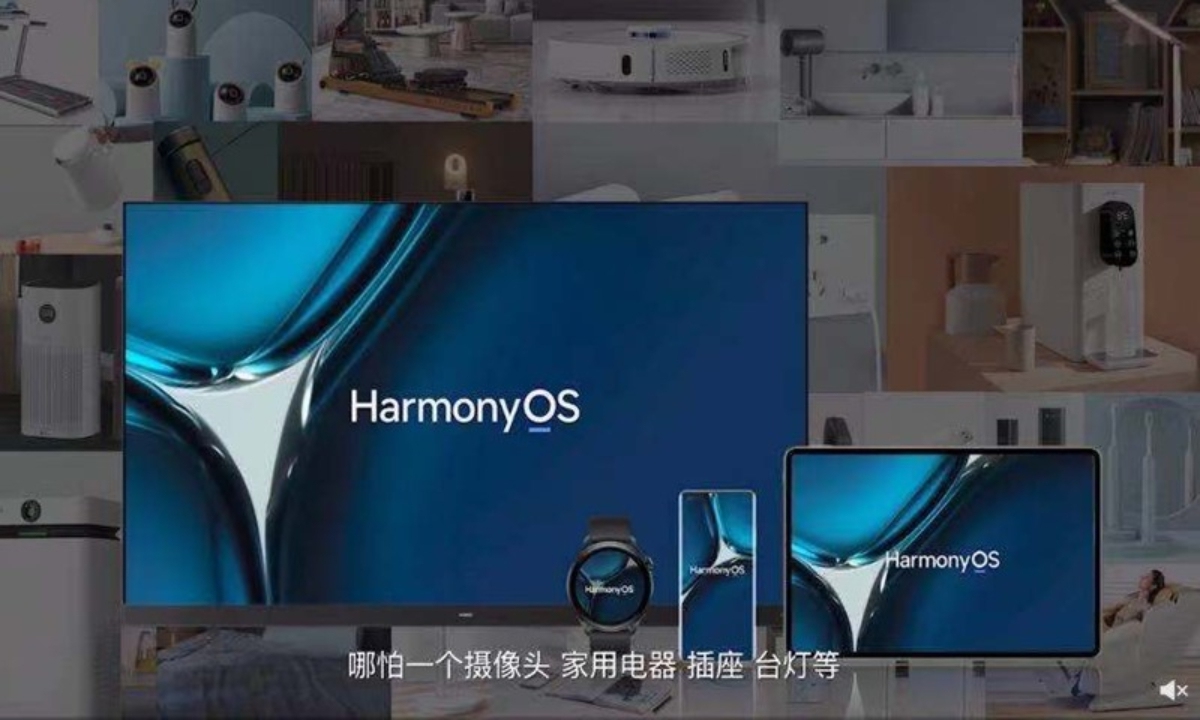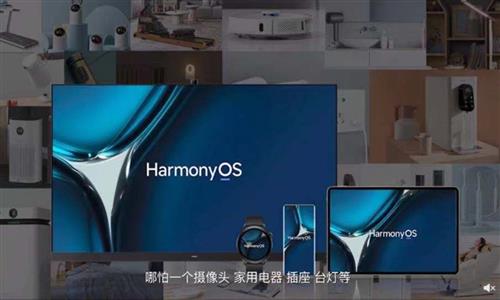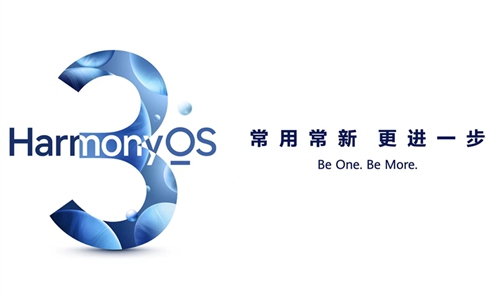Chinese operating systems to see explosive growth as US crackdown speeds up self-reliance process: experts

Huawei HarmonyOS
Domestic operating systems (OS) are set for an explosive growth in 2024, as the sector's self-reliance efforts show effectiveness amid the intensified US crackdown, industry observers said, and the coming of the Internet of Everything era, where Chinese firms have an advantage, will bolster that trend.
Huawei's HarmonyOS will be one of the main OS to lead that growth, and it will take share away from foreign counterparts, they said.
According to a report by TechInsights, Huawei's HarmonyOS is projected to surpass Apple's iOS as the second-biggest OS in China. The report suggests that HarmonyOS is poised to achieve a milestone in 2024 with the commercial launch of the HarmonyOS NEXT, a revised version that is not compatible with Android.
Despite Huawei's previous challenges related to the supply constraints of the Kirin 9000s chipset, TechInsights anticipates a potential easing of these limitations in the coming months. This could lead to a solid recovery for Huawei in 2024, reshuffling the landscape of the Chinese smartphone OS market and challenging both Apple and Android manufacturers for their market shares.
"The past year was extraordinary and marked the beginning of native HarmonyOS applications. Today, on the first day of 2024, we are entering a crucial year for the comprehensive evolution of the HarmonyOS ecosystem," He Gang, chief operating officer of Huawei Consumer Business Group, said on Monday.
The Shenzhen-based telecoms giant launched HarmonyOS in August 2019, three months after Google stopped providing its suite of proprietary mobile software services to the company due to US sanctions.
Rather than being a replacement, the company stressed that the OS can also be deployed across multiple devices, including smartphones, computers and other electronic devices.
"The HarmonyOS was designed for the Internet of Everything era. It was launched earlier than expected in 2019 due to the US sanctions, but it also helped the OS gain an early foothold in the highly competitive domestic market," Ma Jihua, a veteran industry analyst and close follower of the company, told the Global Times on Thursday.
The ecosystem of HarmonyOS has gradually taken shape after years of development, spanning all walks of life including transportation, social networking, gaming, office productivity, shopping, lifestyle uses and education, Ma said.
In recent months, several major domestic internet companies and leading enterprises including financial technology giant Ant Group, e-commerce firm JD.com, video gaming giant NetEase and food delivery market leader Meituan have announced plans to build new versions of their mobile apps based on HarmonyOS.
On December 6, 2023, McDonald's China and Huawei reached a cooperation agreement, officially announcing that the McDonald's China app will adopt the HarmonyOS NEXT, making it one of the first global multinational chain restaurants to join the ecosystem, McDonald's China said in a statement it sent to the Global Times on Thursday.
Apart from Huawei's HarmonyOS, 2024 is poised to be a breakthrough period for the development of domestic OS in China, Zhang Hong, a Beijing-based industry analyst, told the Global Times on Thursday.
One of the main reasons for this development is that the intensified restrictions imposed by the US will accelerate the process of localization in China, placing a dual emphasis on security and development. This trend has spurred a concerted effort to reduce dependence on foreign technologies and foster the growth of Chinese alternatives, Zhang said.
Moreover, the rapid development and usage of smart devices in the nation is expected to enable Chinese companies to further outpace their global counterparts in the Internet of Everything era, Ma said.


